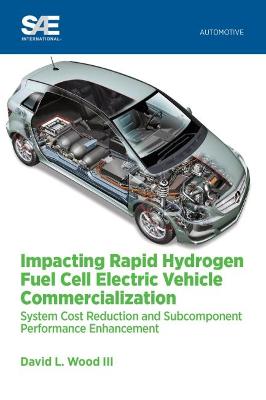Alternative propulsion technologies are becoming increasingly important with the rise of stricter regulations for vehicle efficiency, emission regulations, and concerns over the sustainability of crude oil supplies. The fuel cell is a critical component of alternative propulsion systems, and as such has many aspects to consider in its design. Fuel cell electric vehicles (FCEVs) powered by proton-exchange membrane fuel cells (PEFC) and fueled by hydrogen, offer the promise of zero emissions with excellent driving range of 300-400 miles, and fast refueling times; two major advantages over battery electric vehicles (BEVs). FCEVs face several remaining major challenges in order to achieve widespread and rapid commercialization. Many of the challenges, especially those from an FCEV system and subsystem cost and performance perspective are addressed in this book.
Chapter topics include:
. *impact of FCEV commercialization *ways to address barriers to the market introduction of alternative vehicles *new hydrogen infrastructure cost comparisons *onboard chemical hydride storage *optimization of a fuel cell hybrid vehicle powertrain design
- Impact of FCEV commercialization
- Ways to address barriers to the market introduction of alternative vehicles
- New hydrogen infrastructure cost comparisons
- Onboard chemical hydride storage
- Optimization of a fuel cell hybrid vehicle powertrain design
- ISBN13 9780768082562
- Publish Date 30 July 2016
- Publish Status Active
- Publish Country US
- Imprint SAE International
- Format Paperback
- Pages 277
- Language English
